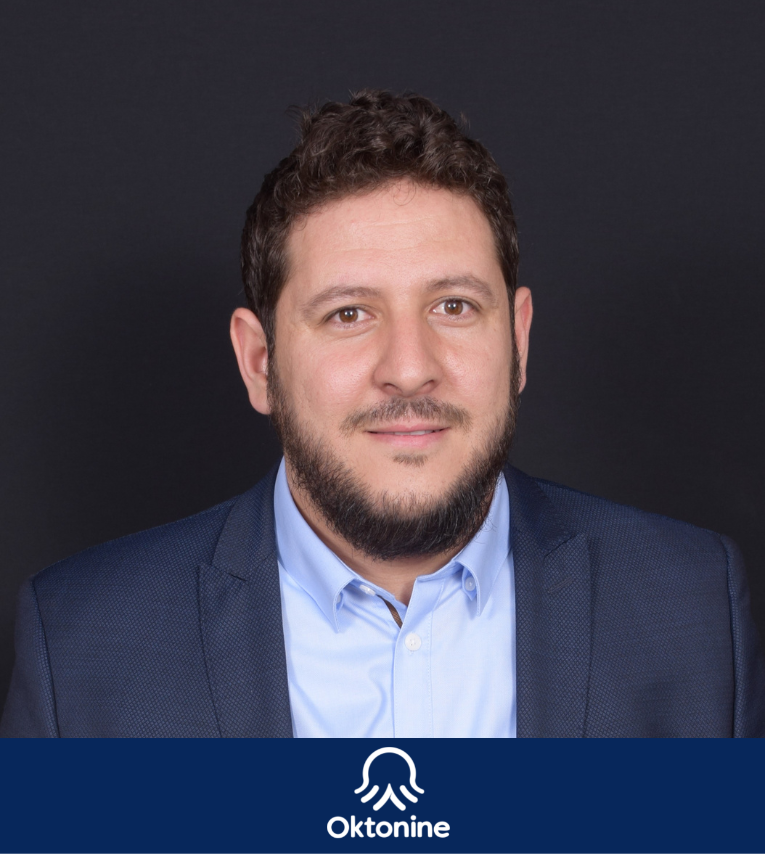
Mohammed Bougaa
CEO of Oktonine
Oktonine is a digital solution that facilitates project-based learning, can you present the platform and its assets?
Mohammed Bougaa: Over the last decade, pedagogical practices in higher education experienced strong evolutions that only have been accelerated over the last 2 years.
In this context, project-based learning has been widely developed and if it is easy to make a class work according to this methodology, doing so at the scale of the institution and integrating it into the identity and vision of the institution is a challenge of another dimension.
Successful deployment of project-based learning involves ensuring that the learner has the right project with the right degree of complexity, the right partner company, the right coaching at the right time. It also requires providing the learner with the right pathway to complete the project, while acquiring the targeted skills and work methodologies sought after in the job market.
More importantly, it is necessary to be able to accurately measure, throughout the project, the skills that the learner has acquired.
This is precisely Oktonine’s core business! We make it possible to deploy project-based learning throughout the institution, or even in collaboration between several institutions, with optimized productivity and, above all, with long-term capitalization. In addition, Oktonine offers other benefits:
- Improve learner engagement and fight against dropout
- Improving the proximity of institutions to the socio-economic world and better calibrating training to the needs of companies and society
- Hybridize training and reduce training costs and the workload of teams
- Adopt a competency-based assessment approach
What value do you create for teachers and students?
M.B.: The role of the teacher today and tomorrow is to train people capable of facing the challenges of the complex world in which we live. Notably, thanks to the development of certain Softskills such as creativity, critical thinking, systemic thinking or problem solving skills. These are attitudes and skills that cannot be taught in the traditional way. Another reason for the popularity of project-based learning.
The project-based approach requires the teacher to adopt a posture of facilitator, guide and relationship builder. They must be able to allow their learners to construct their own learning, taking into account their aspirations and desires, as well as the needs of society, businesses and the environment.
This is easier said than done, especially in a world in which access to education and training has become more democratic, at a level where educational institutions often do not have enough resources to support all their learners in the best way. We are not going to ask teachers to assume these changes of posture alone.
In fact, this problem of scale is the biggest obstacle to the adoption of project-based learning, whose founding principles are more than a century old.
Oktonine is thus positioned as a tool that allows teachers to take possession of their new postures and improve their productivity. The teacher can rely on Oktonine’s assets to :
- Have access to real projects, proposed by companies or by his peers.
- Ensure that learners go through the right path, which allows them to acquire the targeted skills and master the work methodologies sought by companies.
- Coaching learners at the right times and identifying/validating skills acquired in the workplace.
Students also find happiness in their training thanks to Oktonine. They become more committed to their learning, improve their interpersonal skills and develop their Softskills, develop their company network, gain experience and prepare for their professional integration.
Oktonine is a young company, what are your ambitions for the years to come?
M.B.: More and more “new generation” schools that promote a project-based pedagogy are emerging, and that’s great!
Our first ambition at Oktonine is to support traditional schools so that they can meet the challenges of pedagogical transformation without deploying colossal resources or radically changing their current organizations.
We also aspire to international development! We designed our solution from the start with excellent technical scalability potential, but also the adaptability of the diversity of usage scenarios. Beyond Oktonine’s notoriety, this international opening allows us to develop new forms of collaboration in the service of training.
We want to make Oktonine the flagship location, which has all the necessary tools for engaging learning, through practice, projects, peers, and closer to societal and environmental challenges.
These ambitions reflect who we are and how we want to see the training world of tomorrow. A world where the learner and his or her impact on society and the environment are at the center of all stakeholders’ interests.






